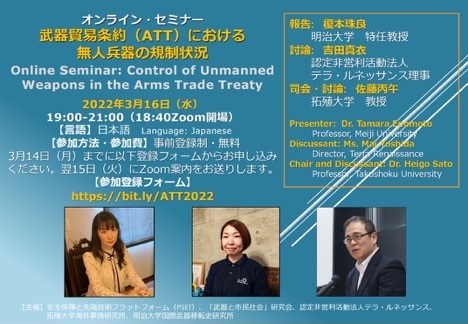Details of the Initiative
The Research Institute for the History of Global Arms Transfer of Meiji University studies the proliferation of weapons and disarmament and arms control issues facing the modern world in terms of both historical research on the economy, international relations, empires and military affairs, and discussions on current policy issues, and disseminates the results to various fields around the world.
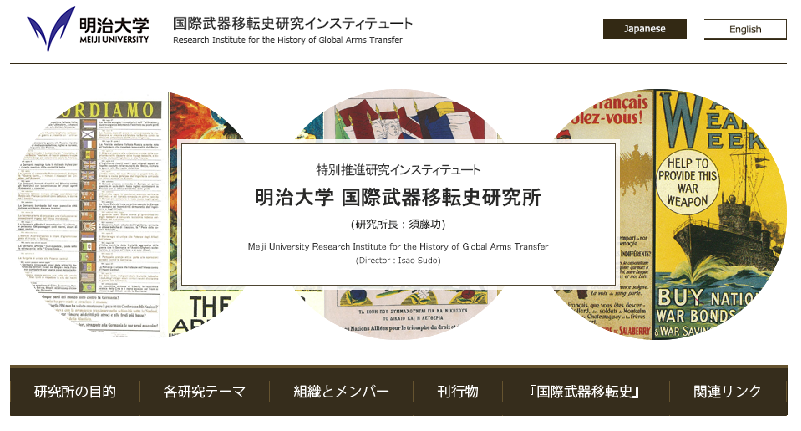
The website of the Research Institute for the History of Global Arms Transfer is here
The issue of disarmament and arms control today takes on an extremely complicated aspect, so making sure of the essence of the issue is not easy despite its importance. The issues of arms and military affairs are as if they were shut in darkness.
Research activities: Dissemination of disarmament and arms control research results
We have focused on the concept of arms transfer. The words have been frequently used in the field of international politics that are targeted on the Cold War period. In its projects, the Institute has produced many results by applying the words “arms transfer” to the field of historical studies as an analytical concept to unravel the essential structure of the modern world surrounding disarmament and arms control.

Here is an overview of each volume.
The journal History of Global Arms Transfer published by the Research Institute also contains articles by many researchers not only in Japan but also overseas. All articles published from the first issue (January 2016) to the latest 14th issue (July 2022) are available on the Institute’s website.
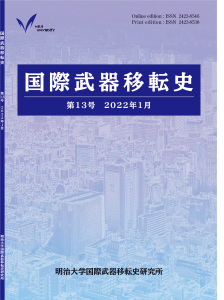
Read the published articles here
Educational activities: Contribution of cutting-edge research results to education
The Research Institute for the History of Global Arms Transfer also shares the latest research results to undergraduate education through a university-wide general course.
In the lecture titled “The current stage of military independence in Asian countries: a study on the history of arms transfer” (2021 spring semester), we discussed the issues of arms production, import and export, or “arms transfer”, which has always been regarded as a factor affecting the international order in Asia from various academic fields such as international politics, and histories of economics, politics and immigration.
In addition, at the lecture “Prospects for disarmament and arms control in the post-COVID-19 era” (2021 autumn semester), we introduced the current situation in which international policy discussions and practices on disarmament and arms control are at a major turning point, taking into account the fact that there are very few opportunities to learn about the disarmament and arms control of conventional weapons, biological and chemical weapons at universities.
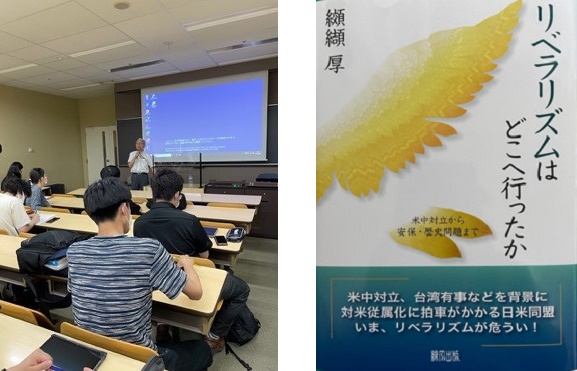
Click here for an introduction to the content of “Liberalism ha Dokoeittaka” (Where Did Liberalism Go?) by Atsushi Koketsu (Ryokufu Shuppan)
Click here for an overview of the 2022 university-wide general course held by the Research Institute for the History of Global Arms Transfer.
Research and extracurricular activities: Initiatives through online seminars with an eye on post-COVID-19
While many universities have been forced to introduce online classes to prevent the spread of COVID-19 infection, there have also been a number of restrictions in the area of academic exchange. During this period, however, the Research Institute for the History of Global Arms Transfer has been exploring new dimensions of multifaceted, more international activities. The following are examples of participation in such initiatives.
‘Race and Gender in Humanitarian Disarmament’
Discussing gender and racial discrimination in the disarmament sector, as well as the global challenges of humanitarian assistance activities, while looking ahead to disarmament in the coming years
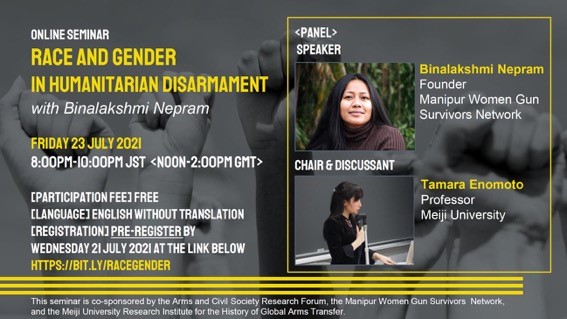
‘BLM and the International Aid Community: Reflection by a Former Aid Worker from Japan’
Discussions on the development of the Black Lives Matter movement and the challenges facing international aid organizations
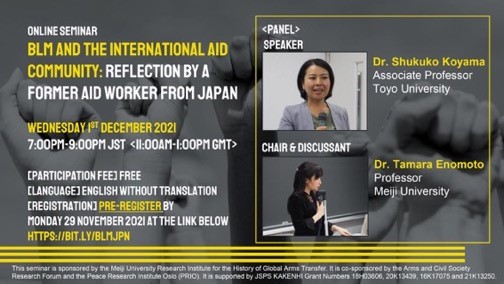
Control of Unmanned Weapons in the Arms Trade Treaty
Discussions about how much unmanned weapons can be controlled through the Arms Trade Treaty (ATT), which came into force in 2014.
